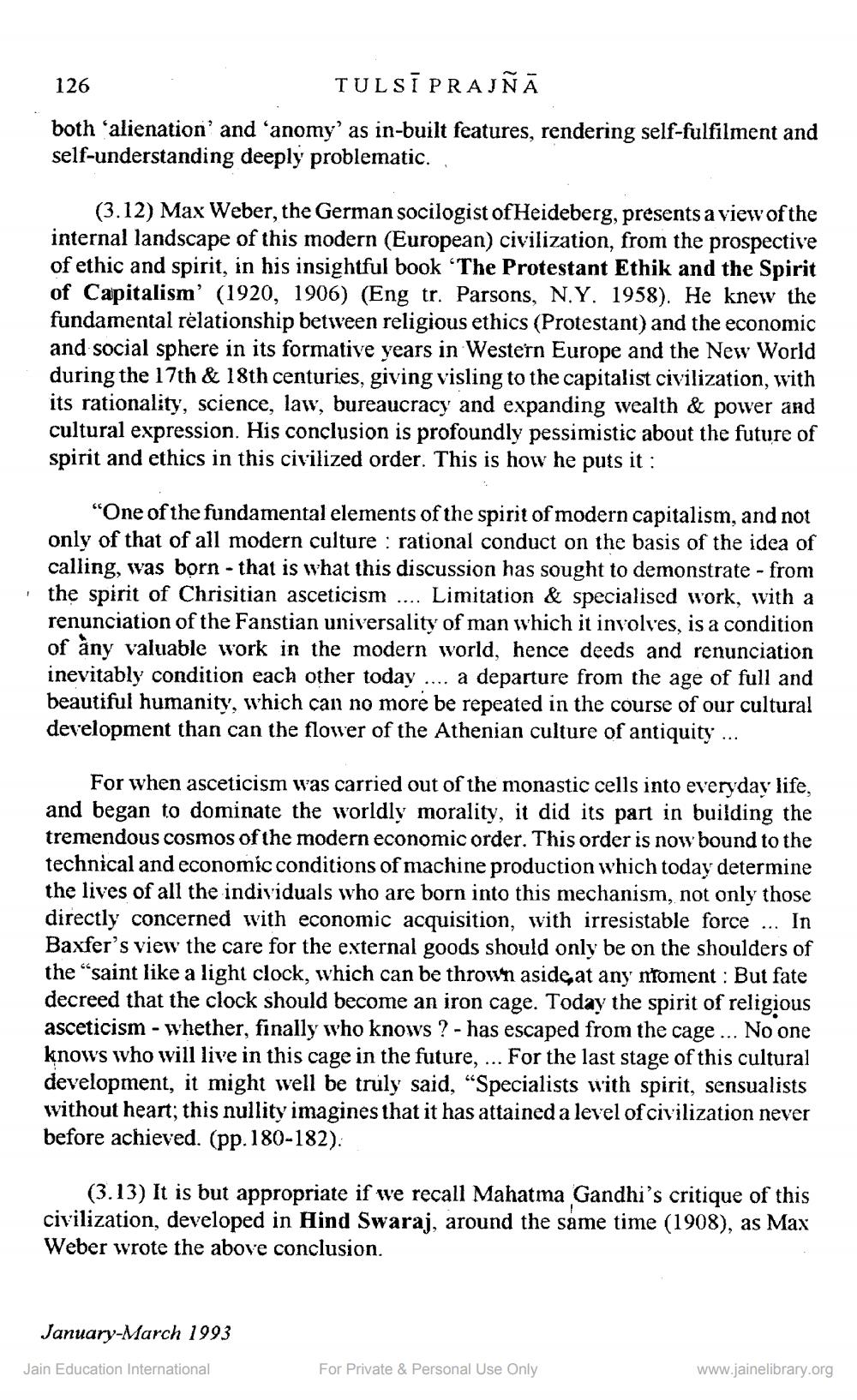________________
126
TULSI PRAJÑA
both 'alienation' and 'anomy' as in-built features, rendering self-fulfilment and self-understanding deeply problematic.,
(3.12) Max Weber, the German socilogist of Heideberg, presents a view of the internal landscape of this modern (European) civilization, from the prospective of ethic and spirit, in his insightful book "The Protestant Ethik and the Spirit of Capitalism' (1920, 1906) (Eng tr. Parsons, N.Y. 1958). He knew the fundamental relationship between religious ethics (Protestant) and the economic and social sphere in its formative years in Western Europe and the New World during the 17th & 18th centuries, giving visling to the capitalist civilization, with its rationality, science, law, bureaucracy and expanding wealth & power and cultural expression. His conclusion is profoundly pessimistic about the future of spirit and ethics in this civilized order. This is how he puts it
"One of the fundamental elements of the spirit of modern capitalism, and not only of that of all modern culture : rational conduct on the basis of the idea of calling, was born - that is what this discussion has sought to demonstrate - from the spirit of Chrisitian asceticism .... Limitation & specialised work, with a renunciation of the Fanstian universality of man which it involves, is a condition of any valuable work in the modern world, hence deeds and renunciation inevitably condition each other today .... a departure from the age of full and beautiful humanity, which can no more be repeated in the course of our cultural development than can the flower of the Athenian culture of antiquity ...
For when asceticism was carried out of the monastic cells into everyday life, and began to dominate the worldly morality, it did its part in building the tremendous cosmos of the modern economic order. This order is now bound to the technical and economic conditions of machine production which today determine the lives of all the individuals who are born into this mechanism, not only those directly concerned with economic acquisition, with irresistable force ... In Baxfer's view the care for the external goods should only be on the shoulders of the saint like a light clock, which can be thrown aside at any ntoment : But fate decreed that the clock should become an iron cage. Today the spirit of religious asceticism - whether, finally who knows? - has escaped from the cage ... No one knows who will live in this cage in the future, ... For the last stage of this cultural development, it might well be truly said, "Specialists with spirit, sensualists without heart; this nullity imagines that it has attained a level of civilization never before achieved. (pp.180-182).
(3.13) It is but appropriate if we recall Mahatma Gandhi's critique of this civilization, developed in Hind Swaraj, around the same time (1908), as Max Weber wrote the above conclusion.
January-March 1993
Jain Education International
For Private & Personal Use Only
www.jainelibrary.org




